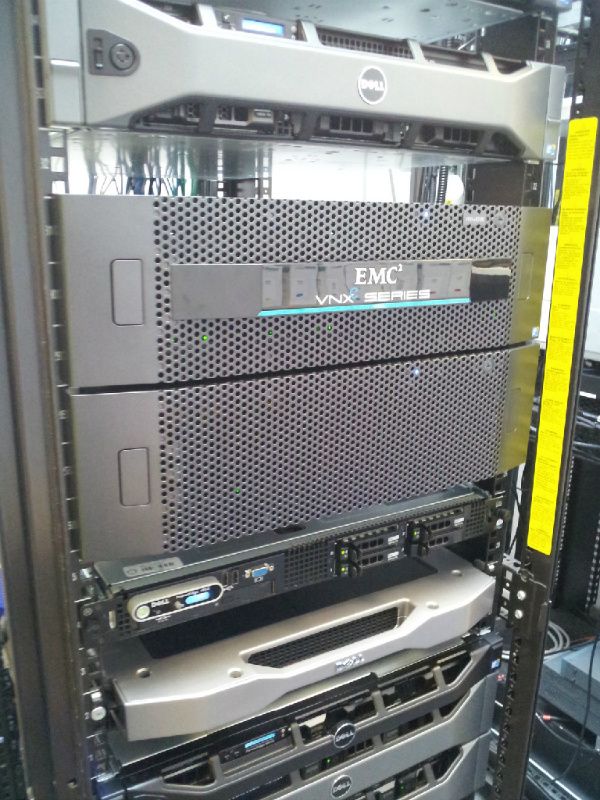Associate
- Joined
- 18 Oct 2002
- Posts
- 1,361
- Location
- Bamber Bridge
Hi people,
I've got a few questions regarding a new SAN we're wanting to implement. We're currently using esxi 4.1 free version with direct storage, and our sql server isn't virtulised. We have't got any fault tolerance between our esxi hosts so looking at new servers and storage unit.
I;ve got the servers sorted, so no probs there. But what is really confusing me is the SAN. We've had 3 quotes for 3 different systems, the first an EMC VNXe san, a dell powervault md3220 and a hp version.
Now the EMC is a unified storage system so will do windows shares from it, the other 2 won't. It's also an iscsi unit. Now what i'm wanting to know is will this slow it down compared to the other das sas 6gbp/s units?
Has anyone any experience of any of these units?
We will be virtualising the sql server, 20gb database, maxium 100 users at once. along with a load of other servers like dc's, web, wsus, sophos.
This is for a school environment, with 440 client pc's, 650 users, of which maxium 380 accessing it at once.
We're after a unit that will perform well, I like the EMC as it's got 15k sas disks for the virtual machines and 7.2k NLSAS for the storage of windows shares. The others are 10k SAS drives. We're looking for about 10tb of space in total.
Any help is appreciated.
I've got a few questions regarding a new SAN we're wanting to implement. We're currently using esxi 4.1 free version with direct storage, and our sql server isn't virtulised. We have't got any fault tolerance between our esxi hosts so looking at new servers and storage unit.
I;ve got the servers sorted, so no probs there. But what is really confusing me is the SAN. We've had 3 quotes for 3 different systems, the first an EMC VNXe san, a dell powervault md3220 and a hp version.
Now the EMC is a unified storage system so will do windows shares from it, the other 2 won't. It's also an iscsi unit. Now what i'm wanting to know is will this slow it down compared to the other das sas 6gbp/s units?
Has anyone any experience of any of these units?
We will be virtualising the sql server, 20gb database, maxium 100 users at once. along with a load of other servers like dc's, web, wsus, sophos.
This is for a school environment, with 440 client pc's, 650 users, of which maxium 380 accessing it at once.
We're after a unit that will perform well, I like the EMC as it's got 15k sas disks for the virtual machines and 7.2k NLSAS for the storage of windows shares. The others are 10k SAS drives. We're looking for about 10tb of space in total.
Any help is appreciated.






